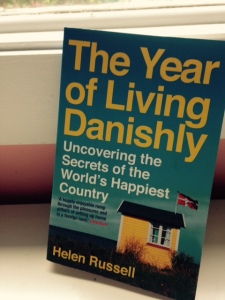In Ruchir Shama’s opinion piece last month, he wrote about recent efforts to move “beyond…
GNHUSA Advocates for Trustworthy Governance at March for Truth Rally

One of the great benefits of the way I experience grief is, my house gets cleaner. The news of the United Airways/Chicago police assault of an innocent passenger who just wanted to get home and to take care of his patients hit me hard. So out came the broom, off of the bed came the sheets — sweeping, mopping, while my brain and heart tried to process what had happened and why it filled me with such sorrow. In part, it’s an issue of trust. Can we trust the policymakers who exert so much control over our lives — including corporate policymakers — to prioritize our collective well being and happiness in their decision making process? The answer that day was, no: dollars matter more than people.
That incident was on my mind a few weeks later as I prepared my remarks for the March for Truth rally in Montpelier, Vermont on June 3, 2017. Although Gross National Happiness USA decided not to co-sponsor the event due to its appearance of partisanship, as President of GNHUSA, I was eager to speak out about trust in governance. Not only is it one of the nine domains of happiness within the GNH framework, lack of trust in governance is a commonality across the political spectrum. Similarly, coming together to increase trust in governance by adopting a non-partisan GNH approach to community well being could be a shared path to happiness.
And so I addressed the rally. It was my first time speaking at such an event and I was a little nervous. There’s a video of my remarks, or, you can read here what I had to say:
“I want to do five things in my brief remarks: 1) broaden the concepts we’re discussing today; 2) share what this has to do with happiness; 3) step away from partisanship; 4) look briefly at the nub of the problem; and 5) share a long term solution.
First, from a GNH perspective, we look at the issue not just as truth in government but as trust in governance, including corporate decisions which can have a major impact on our well being. We should trust, for example, that when we pay hundreds of dollars for an airline ticket, we won’t get dragged off that plane by police because the flight is overbooked.
Obviously policies like that, and lies and deception from elected officials, make us unhappy. That’s why we’re here today. But there is also research. Gross National Happiness is a data-driven approach. Data found nine key areas where governments can create conditions that make us much happier or much less happy. One of those is trust in governance.
 In fact, Helen Russell reported in her book, The Year of Living Danishly, that trust in governance is one of the most important reasons Denmark consistently ranks as a very happy country.
In fact, Helen Russell reported in her book, The Year of Living Danishly, that trust in governance is one of the most important reasons Denmark consistently ranks as a very happy country.
We also have data for this country, and Vermont. Vermonters rate trust in governance as one of our least happy domains, at least one it comes to federal governance.
Throughout America, red state, blue, or purple, there is deep distrust of governance. We don’t necessarily distrust the same officials or believe the same “truths,” but general distrust is a non-partisan commonality. Trust in governance could be a unifying principle. It could bring us together.
So why such untrustworthy behavior? No doubt one reason is greed, which may be innate. I think the real villain is the GDP-driven growth economy which demands greed for money and material goods, sometimes in the name of happiness. But it doesn’t work. Over the last couple of decades, the GDP has risen but happiness has flat-lined. You know what has risen? Suicide rates. For all age groups.
It’s time to be greedy for happiness.*
Unlike the very narrow GDP goal posts of success, a GNH framework is comprehensive and inclusive. The idea is, you run policy decisions through a matrix to determine impact on the environment, equality, health, education and more — all the things that make us truly and collectively happy and well. Then, with holistic data, you can make the right choices.
In 1968, during his ill-fated presidential campaign, Bobby Kennedy said of the GDP, it measures everything “except that which makes life worth while.” It’s just plain wrong, that that’s how we make policy!
A government that took the people’s right to pursue happiness seriously; governance based on well being for all people — including future generations, and animals, and the planet; a government that valued those things which make life worth while — that would be trustworthy governance.
I invite you to join the happiness movement by signing our Charter for Happiness at GNHUSA.org.
Thank you.”
* This is the line that got the most applause!
